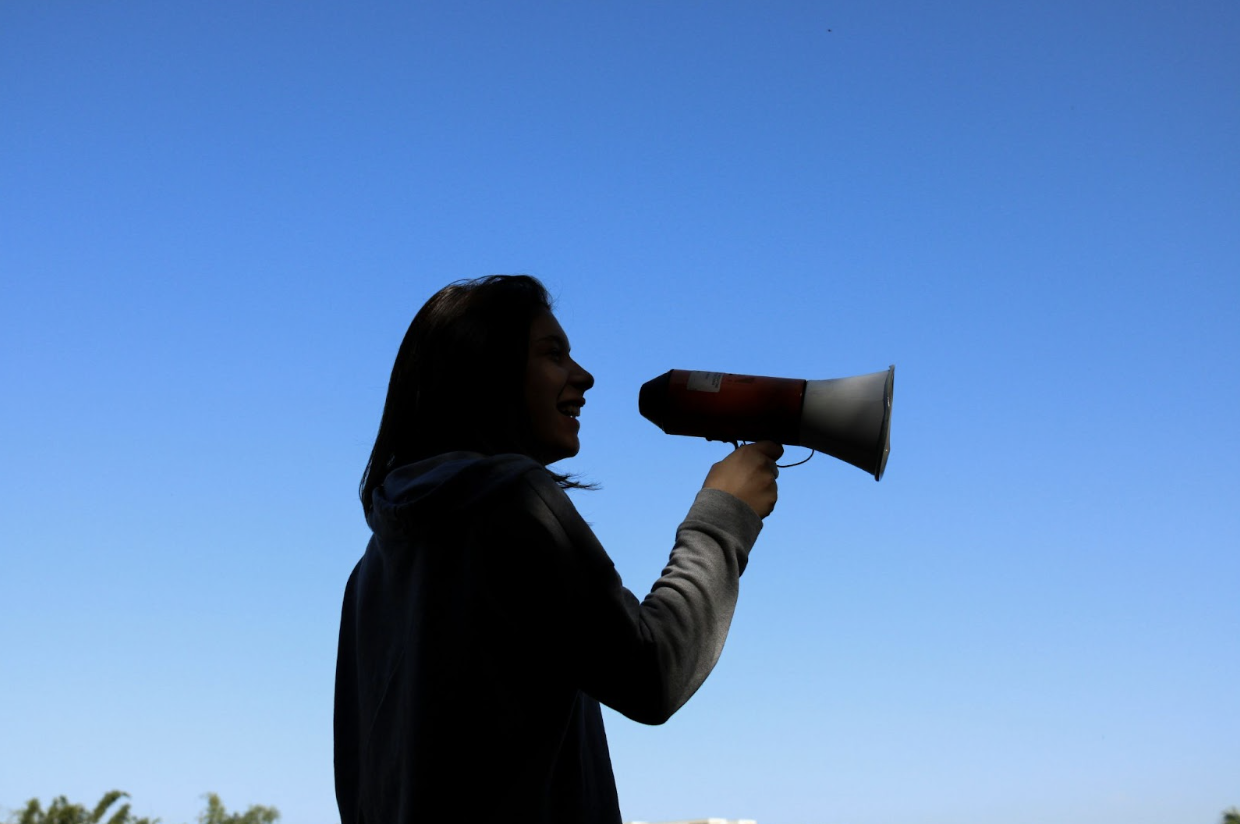San Jose Rotary Club Welcomes Suzanne St. John-Crane
On Wednesday, Jan. 10, the San Jose Rotary Club welcomed Suzanne St. John-Crane to speak about an educational trip she took to the American South, where she had the opportunity to learn more about the Civil Rights Movement through exposure to various monuments. The trip was facilitated by the Empower Initiative, an organization that provides leadership training and consulting. It has tailored its work, particularly to issues of injustice and discrimination having to do with race, gender, sexuality, and more. St. John-Crane, who is Chief Executive Officer of American Leadership Forum Silicon Valley and Executive Director of American Leadership Forum National, participated in this experience along with her colleagues. Members of the League of Young Women Voters at Notre Dame were invited to attend the event. Executive Director of Advancement and Rotary Club Member Amy Pizarro, Assistant Head of School Susana Garcia, Alum Relations Manager Monica Gomez, and Social Studies Teacher Nick Teder were also in attendance.
The first part of the trip that St. John-Crane described was visiting Dr. Martin Luther King Jr.’s home in Montgomery, Alabama. One of the things she noticed about the home was a ripple in the porch, which she learned exists because King’s home was nearly bombed by members of the Ku Klux Klan in response to the success of the Montgomery Bus Boycott. St. John-Crane explained that King had been able to rationalize with the Klan members at that moment, and fortunately he, his family, and their home went unharmed. As a leader, St. John-Crane reflected on the fact that she would have not known how to respond in that situation, and speaks to King’s ability to practice forgiveness and stand up for oneself in the face of oppression.
Additionally, she mentioned going to 16th Street Baptist Church, which was famously bombed because of its affiliation with the Southern Christian Leadership Conference, an organization that worked to desegregate Alabama. Kelly Ingram Park, which is located near 16th Street Baptist Church, has become another famed memorial site where child protestors were attacked by members of the Birmingham police force. These children and other demonstrators were attacked because of their ties to the Southern Leadership Conference. Kelly Ingram Park often served as a site for members of the organization and its allies to convene. St. John-Crane shared photos of the statues that are located in the park that commemorate the deaths of these child protestors, and the profound impact of seeing these children who stood up against their oppressors.
In 2018, Bryan Stevenson, founder of the Equal Justice Initiative, and his organization opened the National Memorial for Peace and Justice. The memorial commemorates victims of white supremacy in Alabama, specifically the lynchings of thousands of African Americans in the 19th and 20th centuries. This was among one of the places that St. John-Crane and her colleagues visited—a monument that begs the question of what accountability looks like for the United States.
St. John-Crane ended her presentation with images of the Court Square Fountain, which is encircled by a mural reading “Black Lives Matter” that was painted in 2020. The fountain has a strong historical significance as it was the site of slave markets during the 19th century. The inaugural parade for Confederate President Jefferson Davis passed through the intersection where the fountain is located, and the telegram that started the Civil War was also sent near the fountain.
Ultimately, St. John-Crane’s insights reminded the audience that confronting human history is central to creating change. Through sharing this idea with the leaders that form part of the Rotary of San Jose, St. John-Crane and the work of the Empower Initiative are examples of how putting this into practice can help leaders to foster liberation in their own communities.

